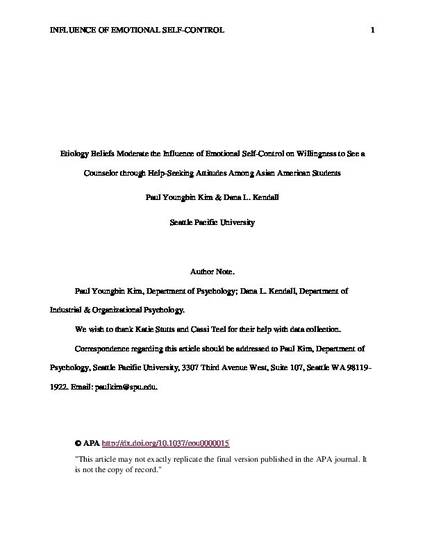
- Asian values,
- help-seeking,
- etiology beliefs
To identify correlates of Asian American professional help-seeking, we tested a mediation model describing Asian American help-seeking (Asian value of emotional self-control → help-seeking attitudes → willingness to see a counselor; Hypothesis 1) in a sample of Asian American college students from the Pacific Northwest region of the United States (N = 232). We also examined biological and spiritual etiology beliefs as moderators of the mediation model (Hypotheses 2a & 2b). Our findings indicated that help-seeking attitudes significantly mediated the relation between emotional self-control and willingness to see a counselor, consistent with our mediation hypothesis. Furthermore, biological and spiritual etiology beliefs moderated this mediation model, providing partial support for our moderation hypotheses. Our findings suggest that researchers can contribute to the Asian American literature by investigating conditions in which established Asian American help-seeking models may or may not hold. In addition, the findings suggest additional nuanced ways for counselors to reach out to Asian American students to increase their mental health service utilization.
